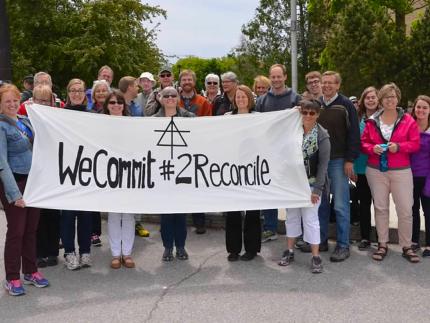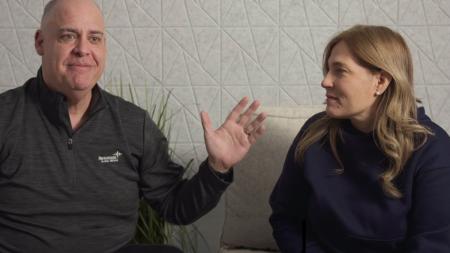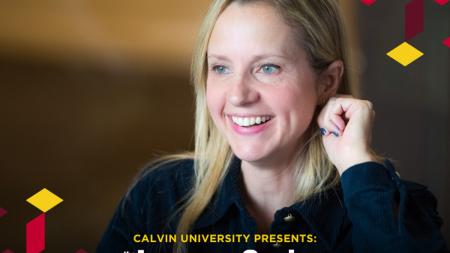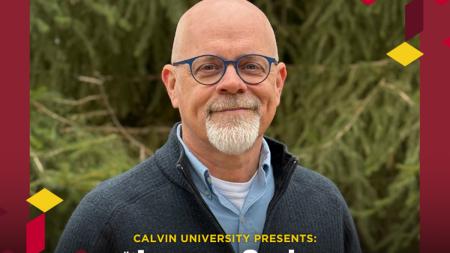CRCNA Marks Day for Truth and Reconciliation

Sept. 30, 2022, marks the second annual National Day for Truth and Reconciliation in Canada. The day coincides with Orange Shirt Day, a grassroots commemoration that has existed in Canada for almost a decade and is marked by children and others wearing orange shirts to school and work in memory of Indigenous children who were forced to leave their families and attend residential schools from the 1870s to the 1990s.
In 2021 the Government of Canada formalized this tradition and made the National Day for Truth and Reconciliation a statutory holiday for federal employees. It is also a holiday in British Columbia, Manitoba, Nova Scotia, Prince Edward Island, and the Northwest Territories. The phrase “Truth and Reconciliation” refers to the work of the Truth and Reconciliation Commission (TRC) of Canada, which was active from 2008 to 2015.
Residential schools were established in Canada to assimilate Indigenous children into euro-Canadian culture and remove Indigenous identity. The TRC was created to document the stories of survivors, families, and communities affected by these residential schools. The report released at the conclusion of the TRC documented many abuses and included 94 calls to action in an effort to repair harms caused by the residential school system. Indigenous voices had a part in formulating the calls to action.
“In 2015, I and other representatives of the Christian Reformed Church were present at the closing ceremonies of the TRC in Ottawa,” said Mike Hogeterp, director of the CRCNA’s Centre for Public Dialogue. “That year we as a denomination committed to ‘turning from the systemic evils behind colonialism and living into a sacred call of unity and reconciliation.’ As we now prepare to commemorate the National Day for Truth and Reconciliation, it is important to remember these commitments and take meaningful action.”
One of the ways CRCNA members have been leaning into the learnings of the TRC report is through the Hearts Exchanged journey. In this forum, people spend eight months exploring how to faithfully live, worship, and embody the gospel in diverse cultural settings.
This fall the third set of Hearts Exchanged cohorts is set to start in churches and regions across Canada. The forum process is designed to prepare Christians to connect with Indigenous communities and build relationships that are marked by mutual respect and reciprocity. Participants are invited into honest dialogue about the harms of colonialism, and they encounter ‘hearts broken’ stories and experiences. More than 250 Canadian CRC members have already participated. The upcoming Canadian National Gathering in May 2023 will be grounded in the work of Hearts Exchanged.
In a recent video, participant Susan MacLarkey says, “The opportunities here to learn are always enticing, and they always deliver.” Many participants have found the opportunity to learn deeply profound. You can learn more at crcna.org/hearts-exchanged.
For CRC members who are not able to commit to the eight-month journey of Hearts Exchanged or who have already participated, the Canadian Indigenous Ministry Committee continues to offer rich resources. For National Truth and Reconciliation Day they have collaborated on a special bonus episode of the Do Justice podcast.
“The ministry of reconciliation is a core biblical calling for all of us as followers of Christ. The National Day for Truth and Reconciliation is a rich invitation to live into this calling. I hope that we will all find ways to continue to reflect on the calls to action in the TRC report and how we can respond. I’m grateful for the ongoing work of our denominational ministries to support all of us on this journey,” said Al Postma, transitional executive director for the CRCNA in Canada.
The special podcast provides an opportunity to reflect. It is designed as a personal reflection on the Truth and Reconciliation Calls to Action 7-10, and it includes readings of the calls to action along with prayers, Scripture readings, and music from Indigenous musician Jonathan Maracle.


